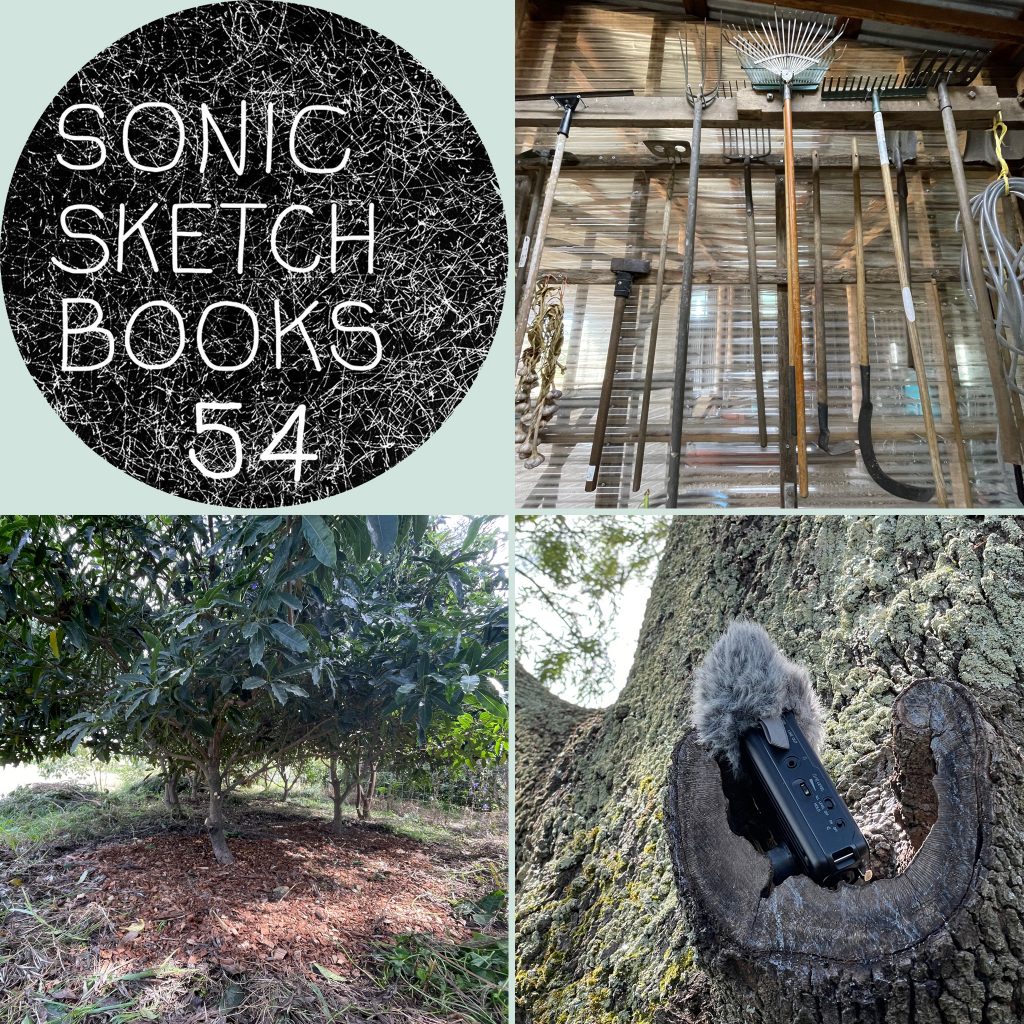
release date: 31 january
2022listen on soundcloud
This episode is built from recordings I made last week while on a brief working sojourn about 500km south of Sydney where I live. I drove to a farm owned by an old friend, a practicing architect who now also farms cattle and is regenerating bushland on expansive acreage close to the Pacific Ocean.
I went there to visit and provide labour, to help with some of the endless tasks always requiring attention on a farm. Besides some fencing installation and maintenance, the main work, undertaken over six days, was removal of an invasive vine species Ipoemoea indica, that had, over a period of a couple of COVID years, completely covered the canopies of about 20 recently established native trees. More is explained in the episode which comprises two distinct parts and a coda.
The first third is an audio verité reportage narrated to my recorder while I worked on the project on the last day. The second movement is a construction of manipulated sounds recorded during my stay. This includes rhythms and melodics derived from the sonic productions of various creatures – cicadas, frogs, birds, cattle – natural forces of wind and water, and machinery and soundings of objects found around the farm. The episode concludes with a few uninterrupted, unprocessed moments of field recording of the ambience of a still, late evening – most of the time I was there was dominated by strong north-easterly winds.
The days followed a distinct rhythm – early breakfast followed by a few hours of intensive work until lunchtime, then some reading and a sleep, another few hours of afternoon work until dusk, dinner together, more reading and sleep.
I took a great block of a book of selected essays by the inspiring and prolific English writer John Berger who knew farm labour well, having moved to rural France in 1972 – when he won the booker prize he gave half the prize money to the UK Black Panthers, and funded his move from metropolitan London to country France with the rest. He lived, wrote, familied and farmed there until his death in Paris at 90 years of age in 2017.
He chose to live this way because he recognised rural life as a space of greater opportunity for personal creativity, thought, existential development and as generative – as opposed to predominantly consumerist – living. He has been described as not a modernity-adverse ruralist but a rural futurist.
Here’s a brief quote from a 1983 John Berger essay titled ‘The Production of the World’:
“When Vincent painted a small pear tree in flower, the act of the sap rising, of the bud forming, the bud breaking, the flower forming, the styles thrusting out, the stigmas becoming sticky, these acts were present for him in the act of painting. When he painted a road, the road-makers were there in his imagination. When he painted the turned earth of a ploughed field, the gesture of the blade turning the earth was included in his own act. Wherever he looked he saw the labour of existence…”
